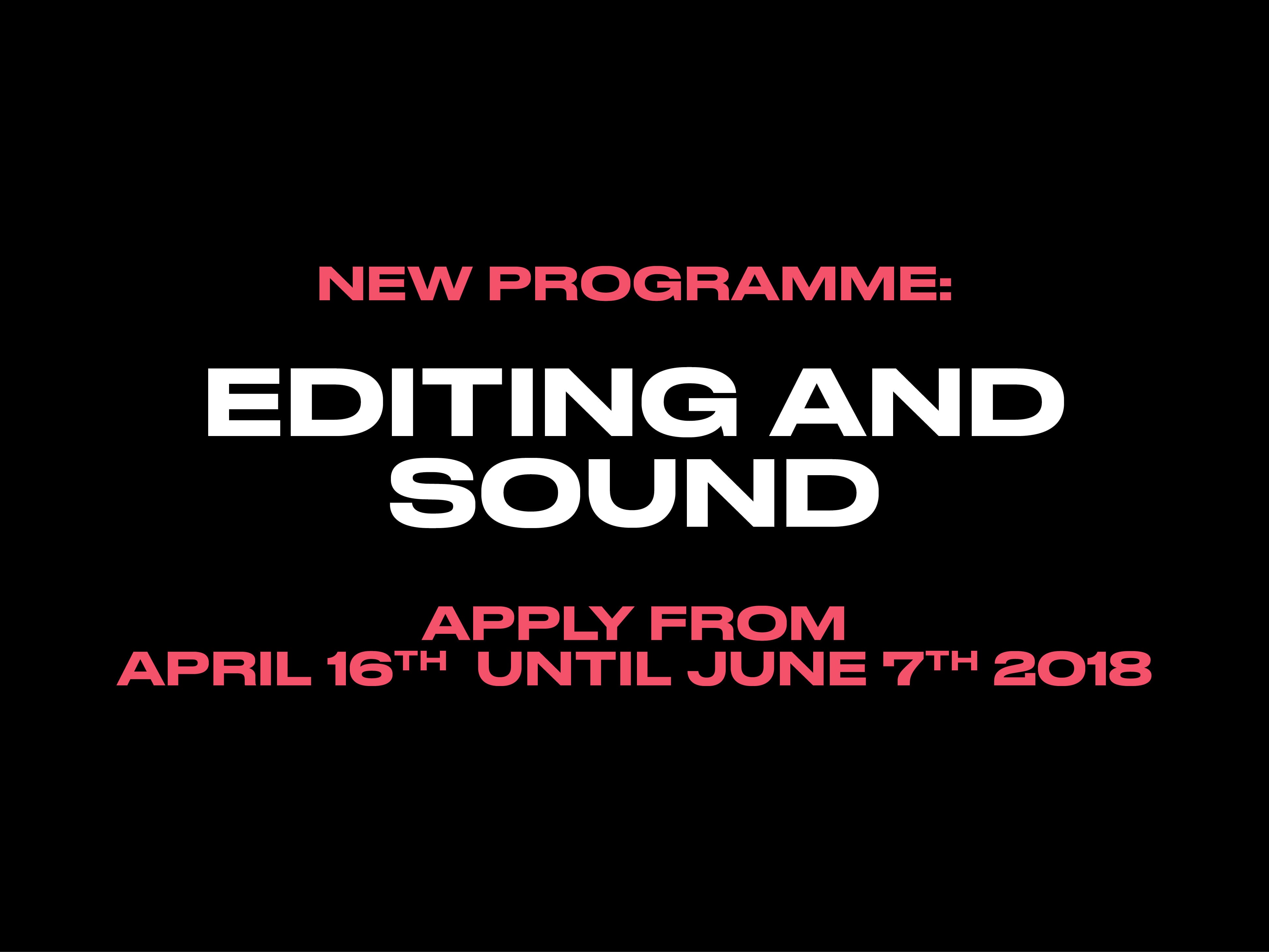
This coming September, the DFFB will offer six students the opportunity to study editing and sound on a full-time basis. This programme, titled Editing/Sound, joins the existing four DFFB programmes: Directing, Producing, Cinematography, and Screenwriting.
The Application Tasks Editing/Sound 2018/2019 are the first steps for applying. Our application platform opens 22nd May 2018. Applications must be submitted by 7 June 2018. The entrance examination will take place in Berlin during the week of 9 July–13 July 2018.
The first year of studies is the same for all DFFB students: the curriculum is generalist. During this time, the theoretical and practical foundations are laid for future collaborations between the different disciplines. Throughout the course of studies, the boundaries between these disciplines remain open – students become well-rounded filmmakers. They develop a holistic understanding of cinema and gain specialised knowledge relevant to their individual disciplines. Understanding all stages of filmmaking is an essential part of the DFFB’s teaching philosophy. Through working together on film projects, students test filmmaking theories to see what works best for them.
Editing/sound students will benefit from this structure. From the onset of their studies and during the course of each project in which they participate, they are considered equal partners to their directing, producing, cinematography, and screenwriting peers. Editing/sound students contribute to story development, understand the cinematic elements of dramaturgy, and are able to assess the quality of an actor’s performance. Furthermore, they have knowledge in the fields of music, sound design, art history, and, above all, film editing.
Through film editing and sound design seminars, editing/sound students acquire filmmaking tools and methods for their own practice. Working on collaborative film projects is at the core of the DFFB’s teaching philosophy. For editing/sound students, the cutting room is the ultimate classroom – it is where conversations with peers and teaching staff take place. Through the process of editing, the cinematic possibilities of image and sound are experienced and examined. In the spirit of Pudowkin: “The development of montage — this is the path that will secure the future of cinema.”
